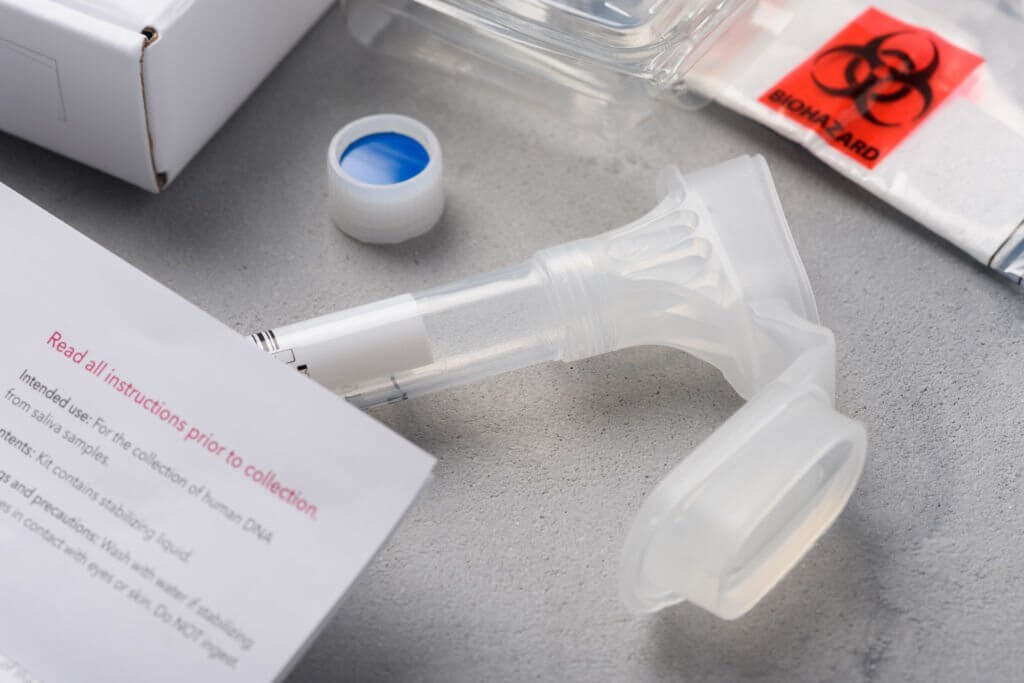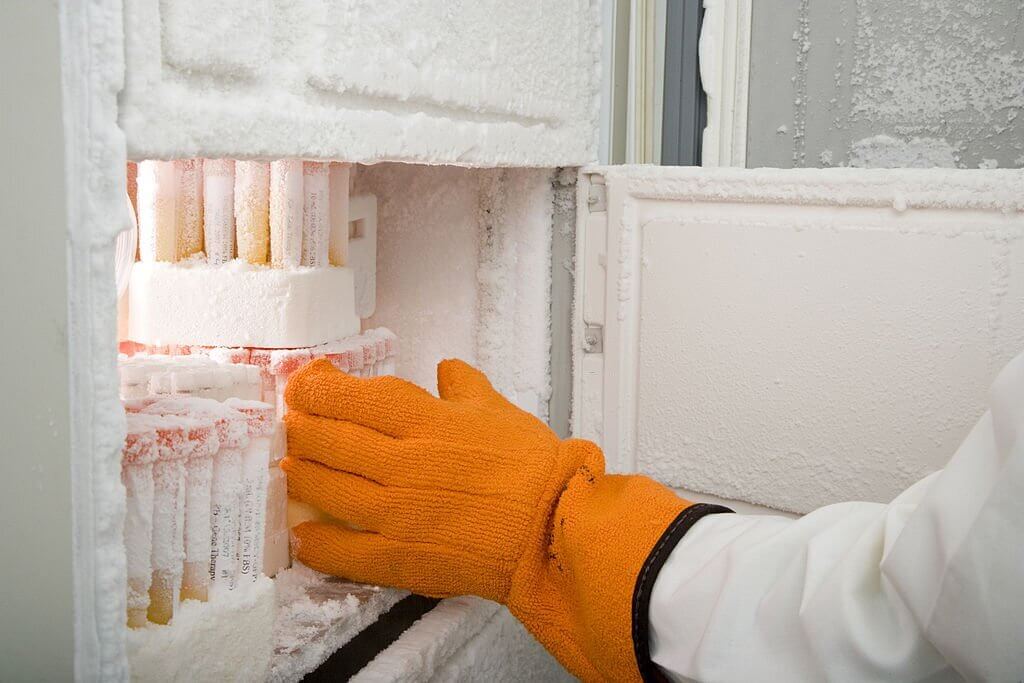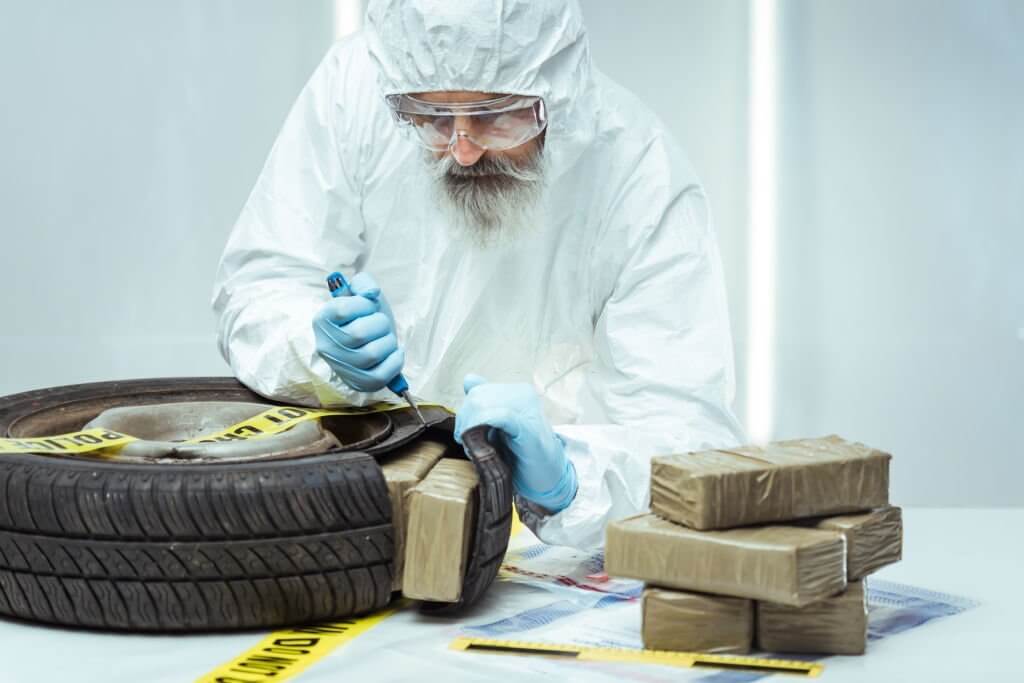
News and Blogs
Saliva Collection Kits: The Non-Invasive and Reliable Way to Collect Samples

Saliva collection kits are becoming increasingly popular in the world of medical testing due to their non-invasive and painless nature. Compared to traditional methods of collecting samples, such as blood and urine tests, saliva collection kits offer a more convenient and comfortable option for patients. These kits are accurate and reliable, and can be used for various types of testing, such as disease diagnosis, drug monitoring, and genetic testing.
According to a report by Channel News Asia, saliva collection kits are being used at roadblocks and checkpoints in Singapore, including Changi Airport, to test individuals for drugs. The use of saliva collection kits allows for quick and efficient testing without the need for invasive procedures. This highlights the potential of saliva collection kits for various types of testing, including drug testing in law enforcement and workplace environments. Saliva collection kits offer a reliable and non-invasive solution for testing and monitoring, making them a valuable tool in various fields.
How a Saliva Collection Kit Works
A saliva collection kit is a non-invasive and convenient tool used for collecting saliva samples for medical testing and diagnosis. It consists of several components designed to ensure a safe and efficient collection process. Here's how a saliva collection kit works:
- 1. Collection container: The collection container is a small tube or vial designed to hold the saliva sample. It is typically made of plastic or glass and has a screw-on or snap-on cap to prevent leakage and contamination.
- 2. Collection device: The collection device is used to collect the saliva sample. Depending on the type of saliva collection kit, the collection device can be an oral swab or an oropharyngeal swab. Oral swab: An oral swab is a small sponge-like device used to collect saliva from the inside of the mouth. The swab is inserted into the mouth and rubbed against the cheek, gums, and tongue to collect the saliva sample. Oropharyngeal swab: An oropharyngeal swab is a longer swab used to collect saliva from the back of the throat. The swab is inserted into the mouth and gently rubbed against the back of the throat to collect the saliva sample.
- 3. Collection instructions: Saliva collection kits come with detailed instructions on how to collect and store the saliva sample. These instructions may vary depending on the type of collection device and the specific requirements of the testing laboratory
- 4. Transport container: The transport container is used to store and transport the saliva sample to the testing laboratory. It is designed to prevent leakage and contamination during transportation and may be equipped with a cold pack to keep the sample at the required temperature.

The saliva collection process is quick and easy. Depending on the type of saliva collection kit, the process typically involves the following steps:
- 1. Wash your hands: Before collecting the saliva sample, it is important to wash your hands thoroughly to reduce the risk of contamination.
- 2. Open the collection container: Remove the collection container from its packaging and open the cap.
- 3. Collect the saliva sample: Using the collection device provided in the kit, collect the saliva sample according to the instructions provided. For oral swabs, this typically involves rubbing the swab against the inside of the cheek, gums, and tongue. For oropharyngeal swabs, this typically involves inserting the swab into the mouth and rubbing it against the back of the throat.
- 4. Store the sample: Place the collection device with the saliva sample into the collection container and securely close the cap.
- 5. Transport the sample: Place the collection container into the transport container provided in the kit and seal it securely. If required, add a cold pack to the transport container to keep the sample at the required temperature.
Saliva samples need to be stored properly to prevent degradation and ensure accurate test results. For immediate analysis, samples can be stored at room temperature for up to 30-90 minutes. However, lowering the incubation temperature can lower the degradation rate of salivary proteome. Therefore, freezing samples immediately after collection at or below -20 ºC is recommended. If a freezer is not available, samples can be stored at 4 ºC for no longer than 6 hours to prevent bacterial growth and further degradation of salivary molecules.
Samples can also be stored at -80 ºC for several years with little or no degradation, but it is best to aliquot and freeze the samples to avoid repeated freeze-thaw cycles. Other storage and specimen processing approaches, including snap-freezing in liquid nitrogen and the use of enzyme inhibitors, have also been explored in previous studies.
For RNA analysis, RNase inhibitor should be added in the supernatant fractions before storing at -80 ºC. However, the recently discovered QIAzol method has shown the ability to isolate high yields of RNA without the need for an extra RNA stabilizer. With this method, saliva samples can be successfully stored for more than 2 years at -80 ºC without adding RNase inhibitors.

Advantages of Using a Saliva Collection Kit
There are several advantages to using a saliva collection kit for medical testing and diagnosis. Here are some of the most significant benefits:
- 1. Non-invasive: Saliva collection kits are non-invasive, making them a less painful and more comfortable alternative to traditional blood tests or urine samples. This feature is particularly beneficial for children or individuals who may be afraid of needles or other invasive procedures.
- 2. Convenient: Saliva collection kits are also more convenient than traditional tests. They can be performed at home, reducing the need for patients to travel to a medical facility. This feature is particularly beneficial for individuals who may have limited mobility or live in remote areas.
- 3. Safe: Saliva collection kits eliminate the risk of infection from needles or other medical devices, making them a safer option for patients and healthcare providers.
- 4. Versatile: Saliva samples can be used for a wide range of tests, including genetic testing, disease diagnosis, and drug testing. Additionally, saliva samples can be collected multiple times, making it easier to monitor changes in a patient's condition over time.
- 5. Accurate: Saliva samples are less likely to be contaminated than other types of samples, such as urine or blood, providing more accurate and reliable results. Additionally, the non-invasive nature of saliva collection makes it less likely to cause discomfort or stress, which can affect test results.
- 6. Affordable: Saliva collection kits are generally less expensive than traditional tests. This feature can be particularly important for individuals who do not have insurance coverage or have high deductibles.
- 7. Easy to collect and store: Saliva samples are easy to collect and transport, reducing the risk of errors during the testing process. Saliva collection kits with preservative solutions offer convenient storage, while refrigerated kits are suitable for certain types of testing.
Different Types of Saliva Collection Kits
There are several types of saliva collection kits available in the market today, each with its own unique features and advantages. Here are some of the most common types of saliva collection kits:
- 1. Saliva collection kits with oral swabs: These kits typically include a swab that is rubbed against the inside of the mouth to collect a sample of saliva. They are non-invasive and easy to use, making them an attractive option for patients who may be uncomfortable with traditional blood tests. However, they may not provide enough saliva for certain types of testing.
- 2. Saliva collection kits with oropharyngeal swabs: These kits use a longer swab that is inserted into the back of the throat to collect a larger sample of saliva. While they may provide a more substantial sample, they can be uncomfortable for some patients.
- 3. Saliva collection kits with preservative solution: These kits typically include a preservative solution that is added to the saliva sample to prevent degradation during transport and storage. This type of kit is convenient for long-term storage, but may not be suitable for some types of testing.
- 4. Refrigerated saliva collection kits: These kits require refrigeration to preserve the sample and prevent degradation. They are suitable for certain types of testing, such as genetic testing, but can be inconvenient to transport and store.
- 5. Specialized saliva collection kits: Some saliva collection kits are designed for specific testing purposes, such as drug testing or genetic testing. These kits may offer targeted testing capabilities but may also be more expensive.
- 6. Home-use saliva collection kits: These kits are designed for patients to collect saliva samples at home and then send them to a laboratory for testing. They offer convenience, but may not provide the same level of accuracy as clinical-grade kits.
Applications of Saliva Collection Kits
Saliva collection kits are a versatile tool with a wide range of applications in medical research and diagnosis. Here are some of the most significant applications of saliva collection kits:
- 1. Genetic testing: Saliva samples can be used for genetic testing to identify genetic variants associated with disease risk or drug response. Saliva collection kits offer a non-invasive and convenient method for collecting DNA samples for genetic testing.
- 2. Disease diagnosis: Saliva samples can be used for disease diagnosis, including infectious diseases, cancer, and autoimmune disorders. Saliva samples contain biomarkers that can indicate the presence of disease, making them a valuable tool for early diagnosis and treatment.
- 3. Drug testing: Saliva samples can be used for drug testing to monitor drug use or identify drug interactions. Saliva samples can detect drugs in the body for a longer period than blood or urine samples, making them useful for drug testing in rehabilitation and workplace settings.
- 4. Hormone testing: Saliva samples can be used for hormone testing to monitor hormone levels, including cortisol, estrogen, and testosterone. Saliva collection kits offer a non-invasive and convenient method for collecting hormone samples for diagnostic testing.
- 5. Sports medicine: Saliva collection kits can be used in sports medicine to monitor hormone levels and detect performance-enhancing drug use. Saliva samples can also be used to monitor hydration levels and detect dehydration in athletes.
- 6. Oral health: Saliva samples can be used for oral health testing to detect periodontal disease, dental caries, and other oral health conditions. Saliva samples contain biomarkers that can indicate the presence of oral health problems, making them a valuable tool for early diagnosis and treatment.
- 7. Forensic testing: Saliva samples can be used in forensic testing to identify suspects in criminal investigations. Saliva samples can provide DNA evidence, making them useful for identifying suspects in cases where blood or other samples are not available.

The Versatility of Saliva in Forensic Science
It's great to see that Singapore is utilizing saliva collection kits to test individuals for drugs at roadblocks and checkpoints.
Forensic science covers various areas such as anthropology, migration studies, and criminology. Saliva is an easily available source for use in forensic science, being present in victims as well as aggressors, parents, children, and siblings. The analysis of saliva can provide critical information related to the salivary gland conditions, toxicology, and drug monitoring, as well as being an essential element in genomics, proteomics, metabolomics, and bioinformatics.
There are two types of tests used for the identification of saliva, presumptive and confirmatory. Presumptive tests can establish the possibility of the presence of a specific bodily fluid, whereas confirmatory tests can identify a specific biological material. Tests utilized for the identification of saliva include α-amylase tests, such as the RSID™ saliva flow and the SALIgAE® test. Polilight® and biodegradable starch microspheres can also be used for saliva detection, but the latter test lacks specificity.
Saliva can also be used to detect psychotropic drugs and ethanol levels as a roadside procedure, with THC being the most prevalent narcotic detected through saliva testing. Detection of psychotropic drugs can also be applied to detect other narcotic agents such as amphetamines, cocaine, opiates, and cannabinoids. SCN concentration in saliva can be analyzed by gas spectrometry, which is useful for identifying smokers, determining certain clinical conditions, and forensic drug testing.
DNA is an essential salivary biomarker in forensic science. The complete sample is available for DNA extraction using mass spectrophotometry, which can identify pure and mixed biological matrices of different species origin without destroying any DNA. STR multiplex systems have high sensitivity as compared to the combination of five classical single locus DNA fingerprints. Bite marks are potential sources of salivary transfer, but DNA extraction from residue degrades over time. Streptococcus mutans is the most useful species in forensic identification of oral microflora.
Want to learn more about saliva collection kits?
Are you in need of reliable and easy-to-use saliva collection kits for your forensic science needs? Look no further than Mantacc! Our collection kits are specifically designed to aid in identifying salivary sample constituents, making them an essential tool for forensic biology, toxicology, and drug monitoring.
With our collection kits, you can trust that you'll receive accurate results for all of your testing needs. Plus, our kits are user-friendly, making them accessible to professionals of all experience levels.
Don't settle for subpar collection kits - trust the quality and reliability of Mantacc. Order your saliva collection kits today and see the difference for yourself!
Find products: saliva collection kits, forensic diagnostics.
References:
1. Bhattarai KR, Kim HR, Chae HJ. Compliance with Saliva Collection Protocol in Healthy Volunteers: Strategies for Managing Risk and Errors. Int J Med Sci. 2018 May 22;15(8):823-831. doi: 10.7150/ijms.25146. PMID: 30008593; PMCID: PMC6036086.
2. Chatterjee S. Saliva as a forensic tool. J Forensic Dent Sci. 2019 Jan-Apr;11(1):1-4. doi: 10.4103/jfo.jfds_69_18. PMID: 31680748; PMCID: PMC6822307.
3. News: Saliva testing rolled out at Singapore roadblocks, checkpoints to nab drug users.
Related Posts
Saliva Collector Benefits for Roadside Drug Testing
Everything You Need To Know About Saliva Collectors
How Do Saliva Collection Kits Improve DNA Quality and Stability?Saliva Collection Kits: A Versatile Tool for Diagnostics & Forensics






